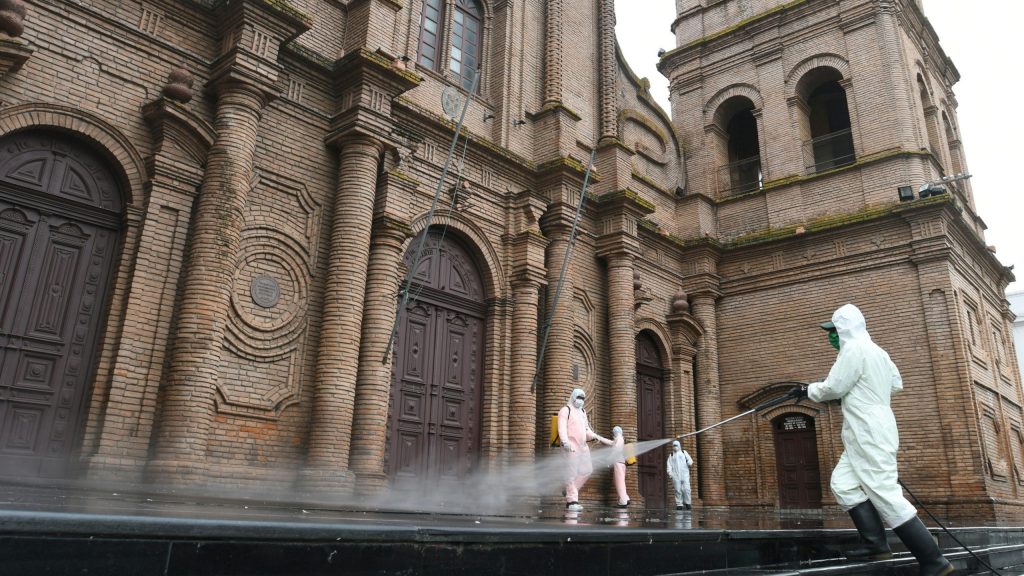With Latin America becoming the epicenter of the coronavirus pandemic, Bolivian bishops rejected accusations of favoritism after religious celebrations were given an exemption from lockdown restrictions.
At the same time, a statement released by the general secretariat of the Bolivian bishops' conference June 10 urged that bishops "not make use of (the exemption) until the contagion curve in Bolivia enters a downward phase."
"Preserving and protecting the lives of everyone remains the Catholic Church's main priority," the statement said.
The bishops' conference, it said, consistently has recommended that priests and the faithful "avoid anything that could contribute to the contagion."
Government authorities had issued a declaration that excluded "religious acts and ceremonies with a maximum of 30% of the capacity where it takes place" while the rest of the country continues under lockdown.
With a decree signed June 1 by interim President Jeanine Anez, Catholics could participate in traditional processions for the feast of Corpus Christi June 10, a national holiday in Bolivia.
Many cities and towns sponsor contests for the best decorations along the routes the Corpus Christi processions would take, noted Fides, the news agency of the Congregation for the Evangelization of Peoples.
Some lawmakers criticized the exemption given to religious institutions at a time when the number of COVID-19 cases and deaths continued to increase. As of June 12, Bolivia had reported 16,165 cases and 533 deaths.
According to the Reuters news agency, medical experts said that the limited amount of testing in the country meant that the number of cases most likely was much higher.
While urging caution in holding religious celebrations, the bishops' conference said the exemption did not undermine the secular nature of the state because it regulated a practice that affects "the vast majority of the Bolivian people."
"A human right, such as the practice of religion, cannot be equated with a leisurely or recreational activity," the bishops said. "We understand the economic problems of every kind that this quarantine creates for those sectors; we also suffer" economically from the lockdown, they added.
The bishops' conference said they would continue to "analyze and reflect on the reality of the contagion" and listen to health experts in order to "make the right decisions" for the good of all Bolivians.
They also urged political leaders in the country to face the reality of the pandemic and warned that certain political ideologies "are blinded by power interests and induce people to make mistakes and put their health and lives at risk."
"May God help us to leave particular or group interests behind and seek, in a coordinated manner, the best for all in this difficult time for Bolivia and the world," the bishops said.

